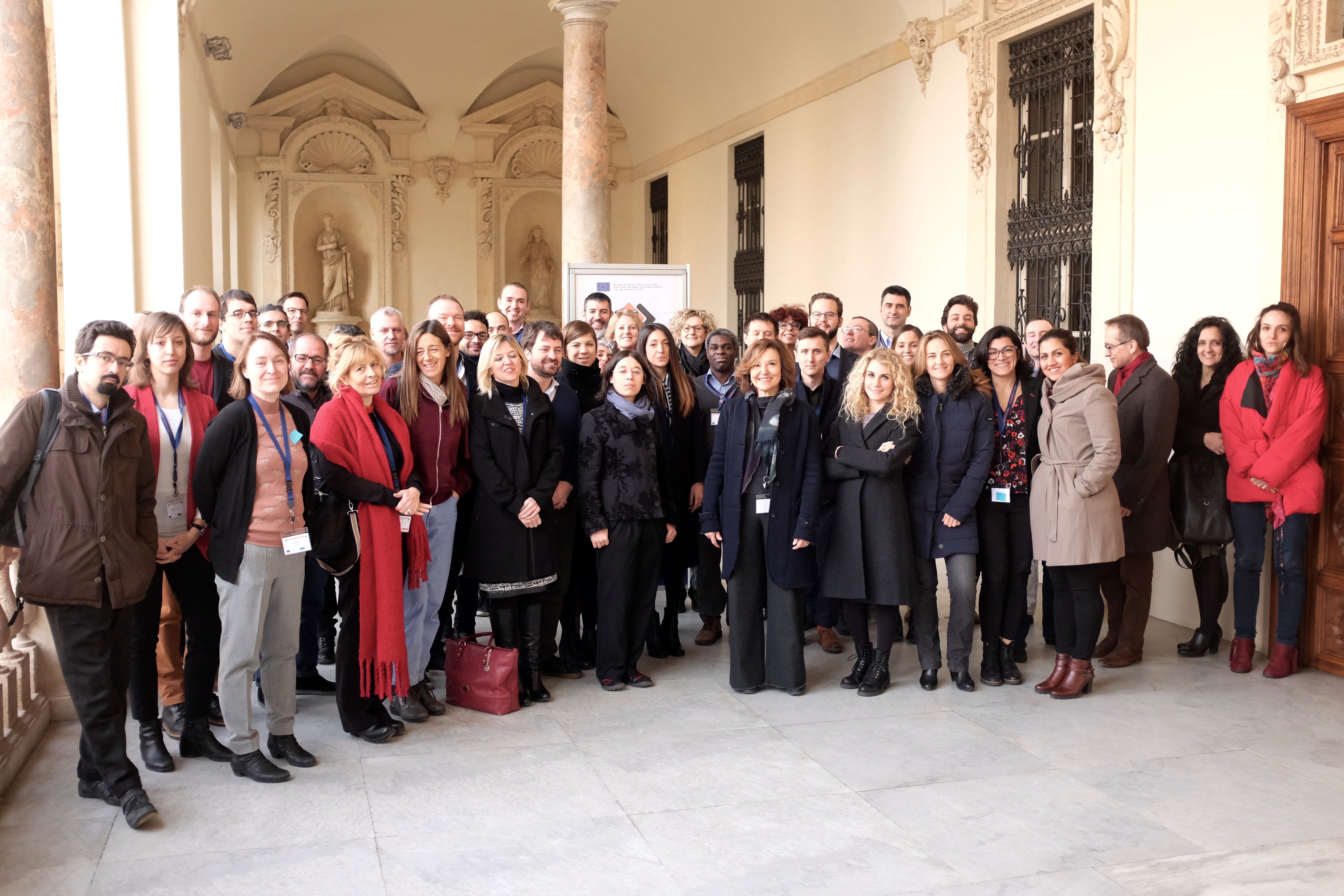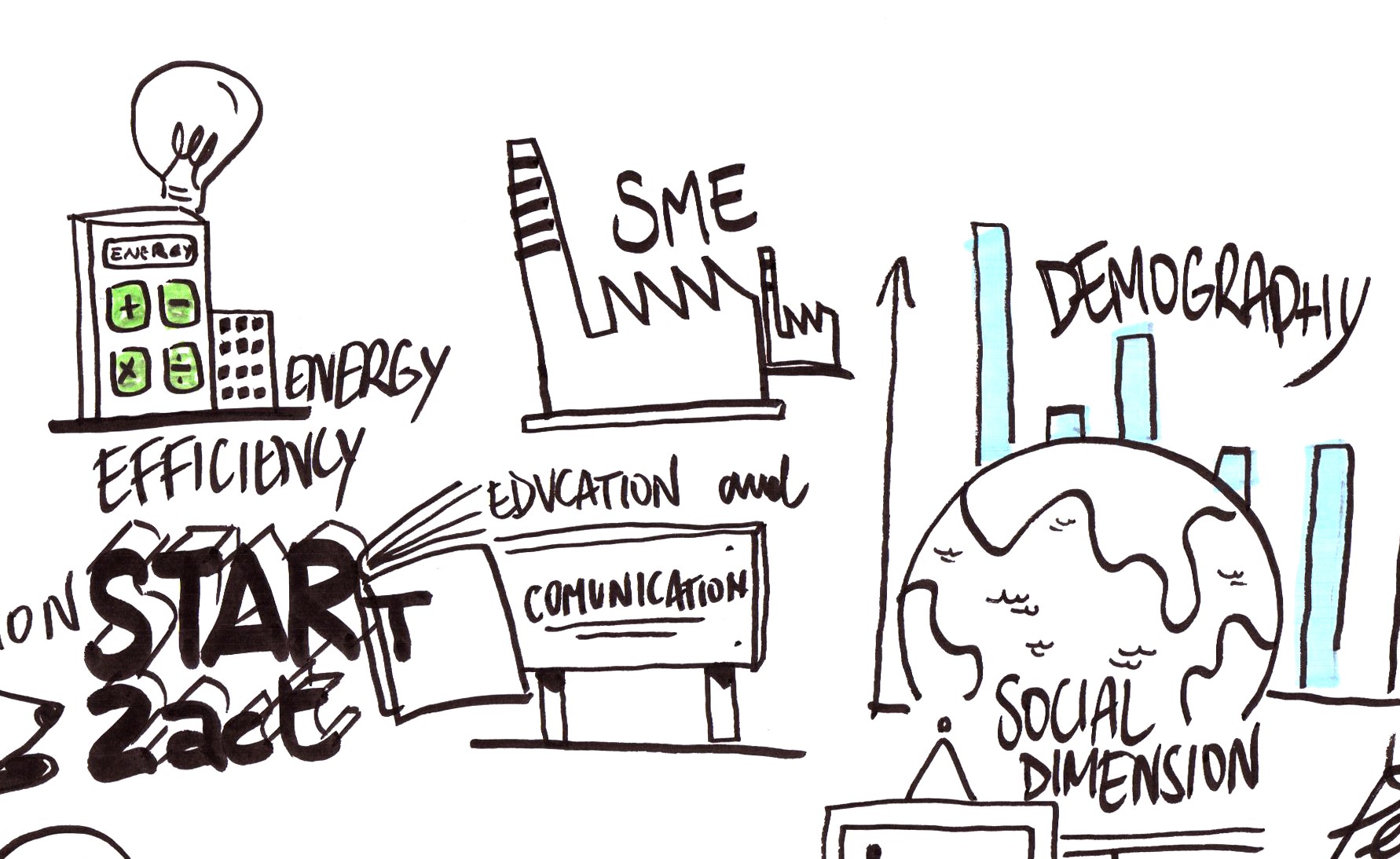
Between the 7th and 9th of February, the START2ACT Team embarked on a trip to Turin, the famous first capital, cultural and food hub of Italy. Besides enjoying the beautiful landscape provided by the river Po and the 19th century architecture, we took on the opportunity of joining a cross-Europe sandpit organized by SHAPE ENERGY. SHAPE ENERGY is an EU-funded Horizon 2020 project that promotes the role of Social Sciences and Humanities (SSH) in the typically STEM-dominated area of energy research and development.
The sandpits aimed at fostering this interdisciplinary approach by gathering a multitude of recent and running FP7 and H2020 projects from the energy field. The events were organized around 4 key topics: (1) Energy efficiency and using less; (2) Competitive, secure, low-carbon energy supply; (3) Energy system optimisation and smart technologies; (4) Transport sector decarbonisation. START2ACT joined in on the first topic, exploiting our insight on business-related needs and motivations regarding energy efficiency.

The participants of the sandpit
The intensive workshop employed a storytelling approach that underpinned the activities for both days. Storytelling techniques help to understand how a project will affect society (by imagining a world where all our goals have been acheived) and therefore clarify the necessary measures to be taken during the project duration. On the first day START2ACT thus presented the project objectives related to SSH, such as tracking and assessing the needs of young entrepreneurs and finding appropriate solutions to spark energy efficiency-related behaviour change at the office.

Interactive illustration of the START2ACT project
The event further provided space to learn more about simultaneously running energy efficiency projects such as MOBISTYLE, NATCONSUMERS, and ENTRUST. The START2ACT project, in contrast, can be considered novel in two aspects. First, it employs a pratical, hands-on consultancy approach that allows young businesses to adopt easily implementable measures into their office culture and thus sow the seeds for long-term "green" thinking. Second, the focus on startups and early stage businesses is not a common aspect of EU projects in this field. Tackling energy efficiency from the conception of new businesses is a forward-looking, disruptive method of securing energy efficiency on the societal level.
In the afternoon we enjoyed a tour around the historic Valentino Castle which was also the venue for the two-days sandpit. The gala dinner in the evening was accompanied by a keynote speech by Dr. Gerd Schönwälder, who pointed out the growing importance of SSH – approaches in energy projects.
The main goal of the sandpit was, however, to engage participants in brainstorming about innnovative ideas for future energy-related proposals. Therefore, on the second day, small groups were formed that had to figure out together a new proposal for an existing call that focuses on SSH. The collaborative efforts helped highlight the importance of SSH in tackling challenges erupting from the societal level. For instance, it has been explored how the communication between policymakers and citizens might be improved by adopting a bottom-up approach regarding the introduction of energy efficiency measures.
The finished proposals were finally presented in front of an ad hoc jury, consisting of official H2020 evaluators and social scientists, who provided an insider’s perspective. Apart from the already mentioned idea, groups recommended a more extensive assessment and evaluation of social media behaviour, a gamification approach towards energy efficiency and more.
Altogether, the event was highly fruitful and successful, bringing together key players from the EU energy projects’ sector. By organizing the sandpit, the members of the various H2020 consortia could explore new ways of future cooperation, taking SSH research into account. Most importantly, researchers from all over Europe could learn about the START2ACT project and consider working with and on startup and young SME needs related to energy efficient behaviour change.
